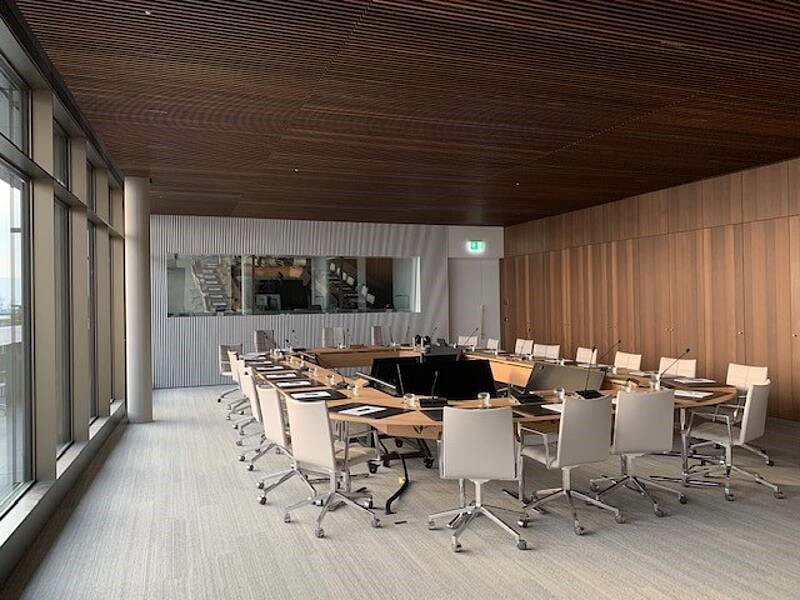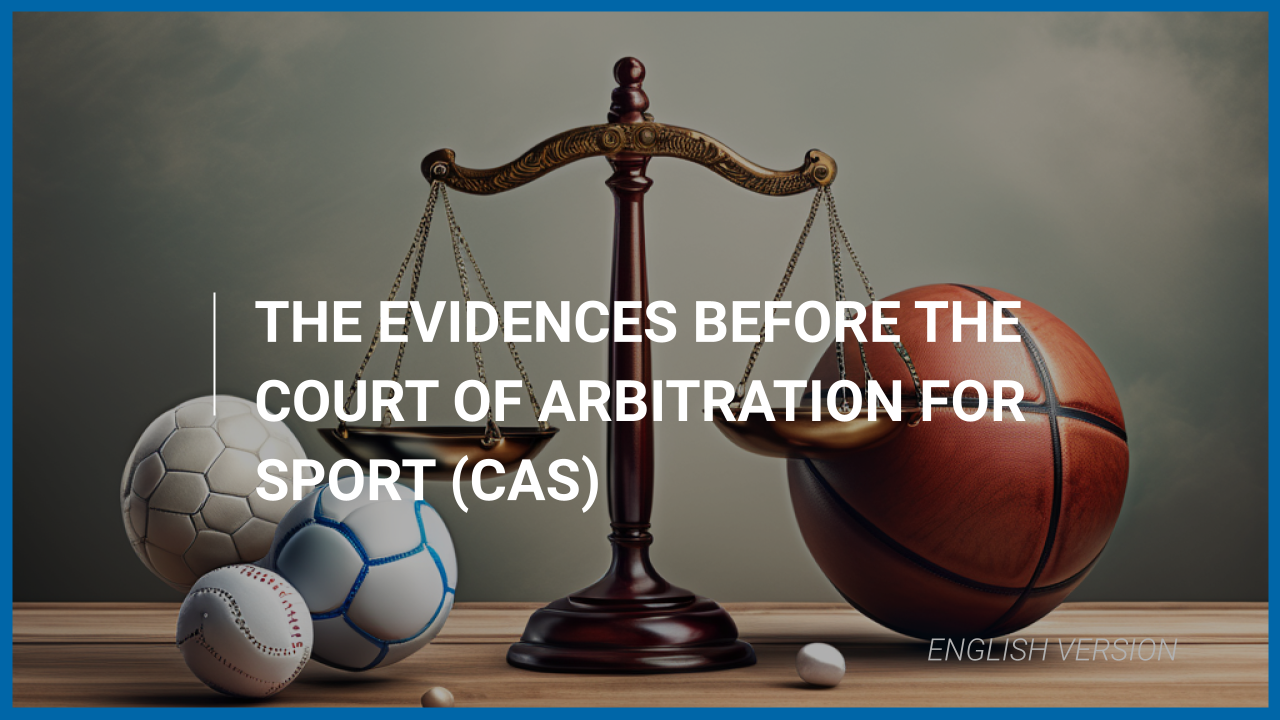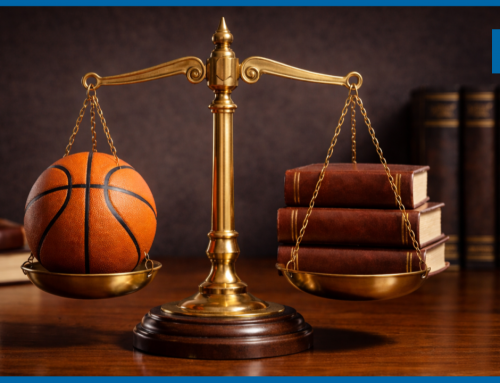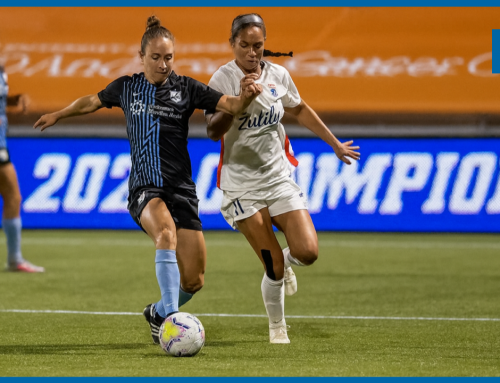Author: Daniel E. Cortés
Published and translated by Winter – Dávila & Associés .
Paris, 16 may 2022.
📍Versions of the article available in other languages:
🇪🇸 Versión en Español
🇫🇷 Version Française
Would you like legal advice on international arbitration? Do not hesitate to contact us!
The evidences are one of the most decisive elements to win or lose a judicial process. Anyone who has been involved in a proceeding as a lawyer or as a plaintiff or defendant knows the importance of the evidences that is brought before the judge or arbitrator to prove the case made in the claim or defence, respectively. Arbitration proceedings before the Court of Arbitration for Sport (CAS) are no exception, as opportunities should always be taken to provide or request all necessary evidence to increase the likelihood of a favourable award.
The CAS is an arbitral tribunal that resolves international sports-related disputes through arbitration and has more than 400 arbitrators from 90 countries on its lists, who are chosen for their experience in international arbitration or sports law, so that hearings and awards reflect different positions based on the experience of each arbitrator. For example, one of the main differences can be seen in the application of continental law based on codified rules (Civil Law) in some proceedings and in others they apply customary law based on the system of precedents (Common Law).
For CAS proceedings, the Rules of Procedure (Articles R27-R70) set out the stages at which the parties may request or provide evidence before the arbitration panel. The evidences are requested with the statement of claim or the statement of appeal and its respective defence. CAS jurisprudence has been clear that these pleadings must be accompanied by evidence to prove the facts alleged by each party. However, there is no provision in the CAS Rules that sets out the requirements for admissibility and assessment of evidence.
YOU CAN ALSO READ: CAS Compliance: Proposals for improvements
Admissibility requirements and assessment of the evidences
Article 184 of the Swiss LDIP (Private International Law Act) and the IBA (International Bar Association) Rules support the ability of arbitrators to decide whether or not evidence is admissible. Therefore, panels have considerable discretion in the admission of the evidences and are not subject to the rules of evidence applicable in State courts.
Thus, the panel is bound to apply the evidentiary rules contained in the sporting regulations applicable to the case and if no such rules exist, it may admit any evidence according to its discretion. In any case, the panel will always be bound to respect the principles of procedural public policy aimed at guaranteeing due process and the parties’ right to evidence (CAS 2011/A/2425, CAS 2011/A/2426, CAS 2018/A/5769).
Similarly, the panel may exclude evidence submitted by the parties if it was available to them or if they could reasonably have provided it before issuing the appealed decision (CAS 2012/A/2797, CAS 2020/A/7117). This is in order to avoid that evidence is submitted in an abusive manner or that the parties keep it in bad faith in order to bring it for the first time before the CAS and surprise their opponent.

TAS-CAS hearing room, 2022
Types of evidence before the CAS
Consequently, due to the lack of evidentiary regulation, CAS case law has established rules of admissibility of evidence by virtue of the evidentiary requests of the parties in the respective proceedings. For example, it has been stated that the statement of a deceased witness made before another jurisdiction without the possibility of cross-examination is admissible as documentary evidence and not as testimony (CAS 2019/A/6665).
Also, in the case of anonymous witnesses, the opposing party’s right to be heard is in principle affected, but anonymous witnesses can be admitted without infringing this right, provided that certain strict conditions are met during their examination at the hearing. In other words, cross-examination must be guaranteed by audiovisual protection and by a thorough control of the identity and reputation of the anonymous witness (CAS 2019/A/6388, CAS 2009/A/1920).
In addition to this, the Swiss Federal Tribunal has said that the use of illegally obtained evidence is in principle not allowed, but depending on the circumstances and after a balancing of interests test, it may exceptionally be allowed (ATF 4A_362/2013, CAS 2011/A/2384, CAS 2010/A/2267).
On the other hand, expert evidence is very common in doping cases involving technical issues (CAS 2011/A/2645, CAS 2011/A/2384, CAS 2011/A/2386, CAS 2008/A/1515). In particularly complex cases, the ex officio Panel may appoint an expert to assist arbitrators in understanding the expertise provided by the parties’ experts (CAS 2009/A/1752 and CAS 2009/A/1753). Even legal opinions on a national law are provided by an expert when a substantial law unknown to the arbitrators applies in the case (CAS 2008/A/1583, CAS 2008/A/1584, CAS 2010/A/2252).
YOU CAN ALSO READ: The four Chambers of The Court of Arbitration for Sport
Conclusion
The procedural rules applicable in proceedings before the CAS allow significant evidentiary freedom in favour of each party that guarantees their right to evidence and their right to be heard, as they can provide or request any means of evidence they deem necessary to prove the facts underlying their claims or their defence; provided that the parties and third parties act within the opportunities granted in the rules of procedure, comply with the established requirements and take into account the panel’s procedural orders. Rules of evidence that have been clearly developed by the jurisprudence of the CAS and the Swiss Federal Tribunal.
If you liked this topic, we invite you to share the article, comment on it and also to visit the rest of publications in the social networks and platforms of Winter – Dávila et Associés
If you would like legal advice do not hesitate to contact us! (email: contact@wdassocies.com)
Original language of the article: Spanish
Bibliography:
– Mavromati, Despina and Reeb, Matthieu. (2015). The Code of the Court of Arbitration for Sport: Commentary, Cases and Materials. Kluwer Law International.
-Rigozzi, Antonio. Hasler, Erika. Noth, Michael and Haas, Ulrich (2018). Chapter 15: The CAS Procedural Rules in: Arroyo, Manuel (ed) Arbitration in Switzerland: The Practitioner’s Guide. Volume II, 2nd edition, Wolters Kluwer., p. 1419-1736.
Theses:
– Cortés Cortés, Daniel Eduardo. “Guía de litigio: Análisis de los procedimientos ante el TAS”. Tesis de maestría inédita. Universitat de Lleida, 2022. danielcortesabogado@gmail.com
– Dávila Valdivia, Miguel Ángel. “Le Tribunal Arbitral du Sport est-il réellement international ? Propositions pour une plus grande décentralisation”. Tesis de maestría inédita. Université Paris 1 Panthéon – Sorbone, 2020. mdavila@wdassocies.com
Sites:
– Tribunal Arbitral du Sport (TAS): https://www.tas-cas.org/fr/index.html
This article was published by Winter – Dávila & Associés, an international law firm based in Paris, in France, represented by lawyers specialized in sports law, corporate law, arbitration and representation.








Leave A Comment